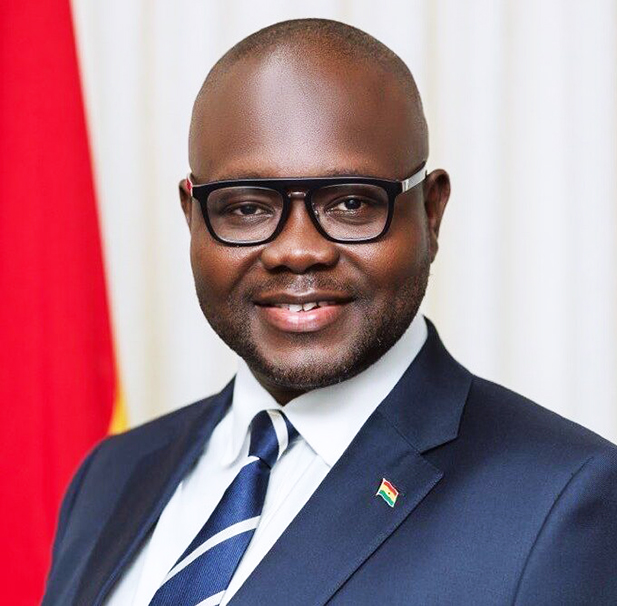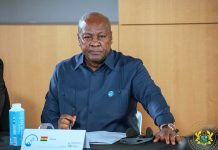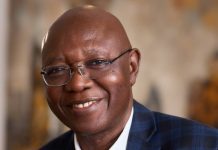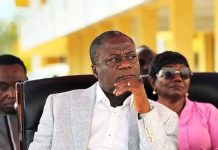Barely a fortnight after the Ghana Institution of Engineers (GhIE) expressed concern over the government’s announcement to construct a six-lane expressway from Accra to Kumasi, former Minister for Roads and Highways and Member of Parliament for Bantama, Francis Asenso-Boakye, has added his voice to the criticism, condemning the move as misguided and financially irresponsible.
The capital intensive infrastructure announcement by former President John Dramani Mahama is drawing sharp criticism from within Ghana’s political establishment.
In a strongly worded article shared via his personal WhatsApp page, Asenso-Boakye accused the Mahama-led administration of pursuing a misguided and wasteful approach to one of Ghana’s most critical infrastructure projects.
The article, personally authored and circulated by the former minister over the weekend, takes direct aim at the government’s plan to abandon the ongoing Accra–Kumasi dualisation project in favour of building a brand-new six-lane expressway between the two cities, a move Asenso-Boakye describes as a misplaced national priority and a reckless use of scarce public funds.
“This is not just poor planning but it is wasteful governance.
We are discarding a well-progressed, economically justified project for the sake of political optics and vanity,” Asenso-Boakye wrote.
Critical Corridor Caught in Political Crossfire
Asenso-Boakye’s concerns centre around the fact that the existing Accra–Kumasi Road, arguably Ghana’s most vital transport corridor, is already undergoing a major dualisation programme.
This road serves as the economic lifeline connecting Accra to Kumasi and onward to the Bono, Ahafo, Northern, Savannah, and Upper Regions, effectively linking the southern and northern halves of the country.
Initiated under the Kufuor administration, later stalled during the Mills–Mahama years and revived under President Akufo-Addo, the dualisation project has made significant progress. According to Asenso-Boakye, more than 100 kilometres of the 240-kilometre corridor have already been dualised, with an additional 46 kilometres currently under active construction, including major bypasses at Anyinam, Osino, Enyiresi and Konongo.
These works are at advanced stages, with physical progress ranging between 58% and 100%.
“Once these sections are completed, only 94 kilometres will be left to dualise. So why abandon a national asset now?”he questioned in the article.
Questionable Shift: Undefined, Unfunded, Unrealistic
President Mahama, in a recent announcement, stated that construction of a new six-lane expressway between Accra and Kumasi would begin next year and be completed before the end of his term.
However, Asenso-Boakye points out that this announcement appears to be built on uncertain foundations.
He notes that during a press briefing, the current Minister for Roads and Highways acknowledged that the feasibility study for the proposed expressway has not yet been completed. In fact, the ministry is still in the process of hiring a consultant to carry out the study.
“How does the President know when a project will start and end when basic details such as scope, design, cost and funding are still unknown?”Asenso-Boakye asked.
“This defies every principle of prudent planning and responsible governance.”
Continuity Abandoned, Constitution Ignored
Citing Article 35(7)of Ghana’s 1992 Constitution, which compels every government to continue projects initiated by previous administrations as far as practicable, Asenso-Boakye argued that the current move represents a clear breach of constitutional duty.
“This is not just a policy disagreement, it is a governance issue. To abandon a project halfway without technical or financial justification is to undermine national continuity and the public trust,” he argued.
Cost of Starting Afresh
Abandoning the current dualisation and starting afresh with a new expressway, Asenso-Boakye warns, will impose enormous financial burdens on the state, especially at a time when the government is already struggling to finance basic infrastructure across the country.
Constructing a new expressway from scratch would require the government to identify and acquire a completely new corridor, which would in turn necessitate fresh compensation payments to affected landowners. This process alone can be time-consuming and costly.
Additionally, the government would have to conduct new environmental impact assessments, develop fresh road designs and initiate a whole new procurement process, which involves tendering, contract negotiations and regulatory approvals.
All of these steps come with substantial upfront consultancy and administrative costs, long before construction even begins.
“It’s an expensive experiment that Ghana simply cannot afford right now,” the former Minister said.
Cost Overruns Are No Excuse
Addressing claims from the Roads Ministry about cost overruns and variations in the current dualisation project, Asenso-Boakye acknowledged that such issues are commonplace in large infrastructure developments.
However, he maintained that they are no excuse for abandoning a national project that is already well underway.
“Variations are expected and manageable within existing legal and contractual frameworks. Walking away from a project due to unresolved variations is not just irresponsible, it sets a dangerous precedent,” he warned.
Vanity Project in Disguise?
Though Asenso-Boakye did not directly label the expressway proposal as a political vanity project, his article strongly implied that the move is more about political legacy than national development.
“We are not against infrastructure. We welcome every effort that brings development to the people.
“But development must be strategic, cost-effective and long-term, not shaped by short-term political ego,” he wrote.
A Call for Common Sense and Continuity
In his closing appeal, Asenso-Boakye called on the government to stay the course and complete the existing Accra-Kumasi dualisation rather than embarking on an uncertain and costly new path.
“Ghana deserves better. Our people deserve infrastructure that delivers results, not empty promises wrapped in grand announcements. Let us honour the public trust. Let us complete what we’ve started,” he said.









